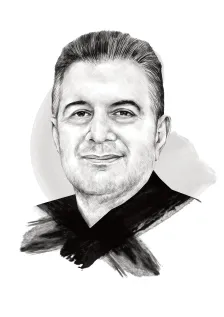Thomas Friedman, the Pulitzer Prize-winning author, coined a famous term in his book The Lexus and the Olive Tree – Understanding Globalisation: “The world is a small village”.
It encapsulated one of the main theories about the great coming together of nations and economies, which was expected to usher in an era of worldwide peace and cooperation.
But globalisation has failed to achieve its lofty goals.
The channels of interconnection among countries did not work as well as hoped. Markets did not fully open up in both directions and promised economic, cultural, and scientific prosperity has not materialised for many.
In truth, globalisation has mostly benefited the global north — specifically its multinational companies.
Instead, greed and polarisation have spread.
Trade wars and full-blown military conflicts have been waged, —mostly in the global south — bringing about destruction, displacement, and enormous economic losses. Even worse, millions of people have died, been injured, gone missing, or otherwise suffered.
Giant multinational companies flourished — they were mostly American and European, or Canadian, Australian and Japanese — before the Chinese woke up. In terms of their financial size and economic and social impact, they outpaced nation-states. Some multinational corporations secured revenues and profits bigger than the size of many national economies.
The more dangerous aspects of globalisation have touched every corner of the world. Its assault has continued, not just with gunpowder but through economic warfare — further impoverishing already destitute peoples.




